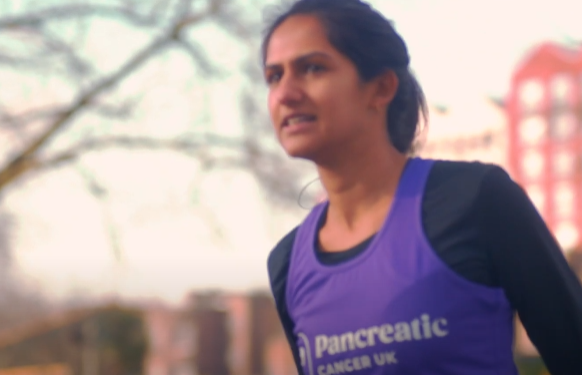As the elections gear up both London and General elections John McGeachy, campaigns manager at Age UK London talks about how charities should manage communications including guidance for staff and trustees
_________________________________________________________________
For Age UK London, having an independent voice in order to effectively campaign for tangible changes to improve the lives of older Londoners is at the heart of who we are. In Charity Commission speak, it’s our ‘charitable purpose’.
As a result, elections are a big deal for us. However, the very time that we want to be most vocal in order to help ensure ageing well in London is as high up on the political radar as possible - is also the very time when we need to be most careful about what we do and say. In short, we can be political but not party political.
Like most charities, the weeks and months before an election are times to think carefully about the Charity Commission Guidance related to political activity and campaigning (most notably, the Commission’s 2008 CC9 guidance). We also look at the Commission’s other guidance around elections and the Electoral Commission’s guidance around the 2014 Lobbying Act.
Unlike most charities who have their eyes set on the General Election right now, for us, as a London focused campaigning charity, it is the elections for Mayor of London and the London Assembly taking place on 2nd May that we are paying most attention to. We will still use the General Election as an opportunity to champion the importance of action to support older Londoners, in particular amplifying the key messages from our friends at Age UK, the national charity.
When it comes to legislation and guidance, trustees and staff will primarily think of the 2014 legislation commonly known as ‘the Lobbying Act’. A few may even think of the Political Parties, Elections and Referendums Act (PPERA). However, to make it slightly more complicate for us, the Greater London Authority elections are covered by Representation of the People Act.
Despite these differences our main guidance remains the CC9 guidance. In January we held a meeting for our Trustees to talk about the guidance and the steps we were taking to reduce the risk that we would breach (even if it was accidentally), the guidance. The primary purpose of the meeting was to reassure trustees that we were confident that we would not deliver activity that could be reasonably regarded as “intended to influence voters to vote for or against one or more political parties or candidates or political parties or candidates that support or do not support particular policies or issues”.
We also held a session for staff, particularly those working on our election communications to think about how we could be strong advocates for older Londoners during the election whilst remaining neutral when it came to candidates and political parties.
Firstly, we discussed the tone of our messages. Was the message and language we planned to use positive or negative towards a particular party, candidate, or policy? In this context, how an activity can be interpreted by others is as important as any intent behind it.
Secondly, we considered context and how prominent an issue was in current political debate. Was there a strong difference in policy with one party’s policy being very similar to ours?
Lastly, we discussed that our communications would have a call to action that could be interpreted or misinterpreted. Would we give the impression that we were asking voters to vote for (or against) a particular party, policy, or candidate?
I think the most useful thing for staff to do in order to feel confident around the regulation and guidelines is to discuss various potential scenarios and to examples. What could we or couldn’t we say in various situations? One scenario we looked at was around a prominent candidate announcing free 24/7 travel for older Londoners just 10 days before polling day. How could we ‘welcome’ a policy without directly or indirectly showing support for or against a candidate or political party?
Alongside communications, we’ve also been thinking about the events we are organising during the election period. As I write we’re just days away from our London Election Hustings for older Londoners.
When charities invite politicians to events happening outside the context of elections, it is normally to speak about a topic that the charity works on. These are events where politicians are not meant to use their platform to ask for votes. Hustings of course are slightly different, and the candidates will use the opportunity at a hustings to promote themselves. This is why we invite a broad range of candidates within the context of what is practical. We need to have a a clear rationale around selecting who to invite (or not to invite).
In recent years we have invited the Labour, Conservative, Liberal Democrat and Green party candidates. The criteria primarily used has been, (1) which parties are represented on the 25-seat London Assembly, and (2) which are parties are the four most popular candidates based on multiple recent polls. We have considered asking a 5th candidate (based on polling) but know that that would reduce the time for questions from the older Londoners attending.
Being cautious doesn’t mean you shouldn’t be bold. So long as you think carefully about your plans you can be confident. The work of charities raising their voices in the run up to elections is not only right, it’s also healthy.
Charity Times video Q&A: In conversation with Hilda Hayo, CEO of Dementia UK
Charity Times editor, Lauren Weymouth, is joined by Dementia UK CEO, Hilda Hayo to discuss why the charity receives such high workplace satisfaction results, what a positive working culture looks like and the importance of lived experience among staff. The pair talk about challenges facing the charity, the impact felt by the pandemic and how it's striving to overcome obstacles and continue to be a highly impactful organisation for anybody affected by dementia.
Charity Times Awards 2023
Mitigating risk and reducing claims

The cost-of-living crisis is impacting charities in a number of ways, including the risks they take. Endsleigh Insurance’s* senior risk management consultant Scott Crichton joins Charity Times to discuss the ramifications of prioritising certain types of risk over others, the financial implications risk can have if not managed properly, and tips for charities to help manage those risks.
* Coming soon… Howden, the new name for Endsleigh.
* Coming soon… Howden, the new name for Endsleigh.
Better Society

© 2021 Perspective Publishing Privacy & Cookies











Recent Stories